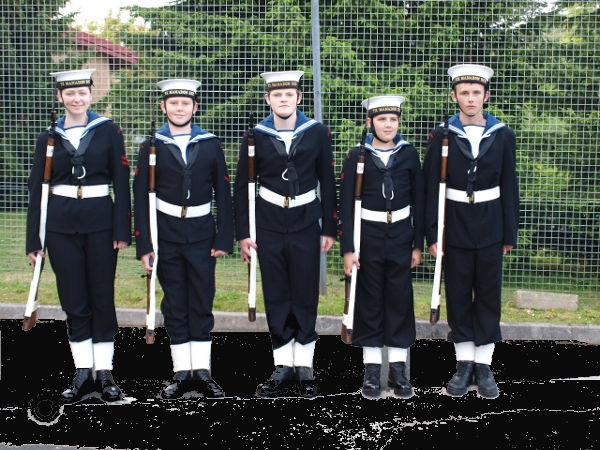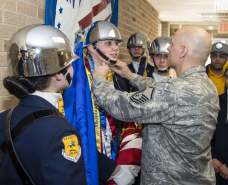Soldiers in the playground

David Gee
UK armed forces focus most of their recruitment outreach on boys with few or no qualifications living in disadvantaged neighbourhoods. Within this group, the main target are so-called “pre-eligibles”: young people below 16, the minimum age of recruitment in Britain. To attract these, the army and air force run recruitment schemes for children as young as 13. The army’s version, called Camouflage, consists of online games, free merchandise and literature that glamorises soldiering as heroic and fun, and emphasises the adventure training opportunities available. Recruiters target age groups even younger than this at village fetes and air shows. In February 2007, the head of army recruitment strategy, Colonel David Allfrey, told The New Statesman:
“Our new model is about raising awareness, and that takes a ten-year span. It starts with a seven-year-old boy seeing a parachutist at an air show and thinking, ‘That looks great.’ From then on the army is trying to build interest by drip, drip, drip.”
Young people without qualifications are targeted for relatively unskilled jobs such as logistics and, especially, the infantry, which is by far the largest part of the army. In 2010, infantry personnel were seven times more likely to be killed in Afghanistan than were the rest of the armed forces. Infantrymen are also more likely to be younger and poorer than the rest of the armed forces, yet it is one of the most glamorised roles.
Outreach to schools is a major part of the recruitment strategy, particularly for the army. In 2009, army recruiters visited 40% of London’s state-run secondary schools. As might be expected, the poorest fifth of schools were visited most. This could be because the army targets these, which is likely, or because teachers in poorer schools invite the army to offer career options to young people who are unlikely to do well in their exams and would struggle to find a civilian job. There is no policy against recruiters visiting primary schools and in 2009 the army visited 64 of these nationwide, although it also insisted that this was not for recruitment purposes.
It is typical for recruiters to bring military hardware onto school premises (in at least one case a military helicopter was landed in a playground) and to “train” children in military practice, such as a rifle drill. Army visits to schools are supplemented with away-days to military establishments such as army barracks and navy ships, where children handle more hardware; at the end of the day they are given a certificate of personal achievement with the address of the nearest recruiting office.
Recruiters can only visit a school with the head teacher’s permission, and so the armed forces work hard to develop friendly relationships with them. To support their case, recruiters may offer to help teachers in the classroom by supporting children with maths and English problems. The army describes itself as “heavily involved” in the delivery of the school curriculum for 11- to 16-year-olds. In 2008 the Ministry of Defence launched a sophisticated series of lesson plans for teachers to download. Indeed, only in 2009 did the army talk openly about schools visits as part of their recruitment strategy; previously they had insisted that their purpose was solely to support schools with the the curriculum and “raise awareness” of armed forces careers.
For these and also personal reasons of their own, many teachers welcome recruiters. Others are sceptical and some schools and local authorities have banned all contact. In 2008, the National Union of Teachers criticised military recruitment in schools and offered to support teachers wishing to resist the practice. School students have also successfully campaigned to stop military contact, or have challenged recruiters so effectively that they have chosen not to return. In any case, recruiters try to bypass teachers, parents and other gate-keepers by reaching young people online with sophisticated, first-person-perspective war games, in which the user plays the role of a British soldier or airman.
In the UK, a new organisation, Forces Watch, aims to support this kind of approach. Another, BeforeYouSignUp.info, tries to present balanced information about careers in the forces to counter the glamorised descriptions in official marketing material, and offers a lesson plan on the ethics of military recruitment. Perhaps one of the most effective ways of countering inappropriate recruitment tactics in the future will be to work directly with school students to increase awareness of the ethical issues that schools recruitment raises.
Countering Military Recruitment

WRI's new booklet, Countering Military Recruitment: Learning the lessons of counter-recruitment campaigns internationally, is out now. The booklet includes examples of campaigning against youth militarisation across different countries with the contribution of grassroot activists.
You can order a paperback version here.







